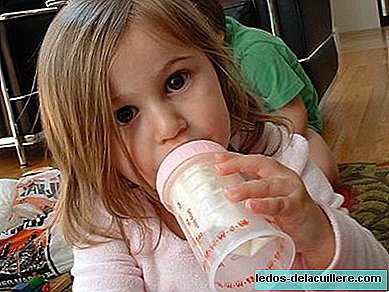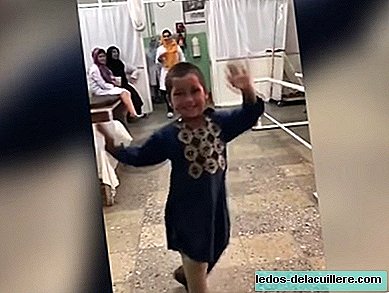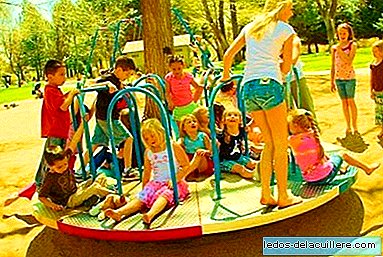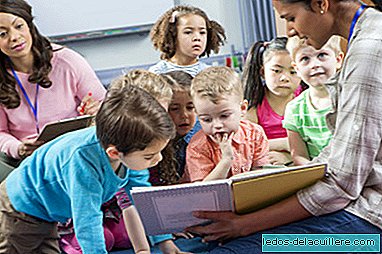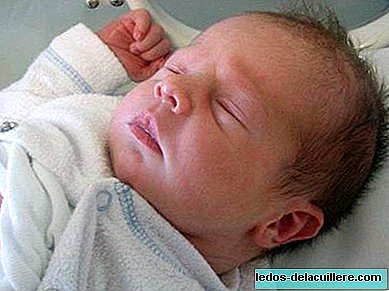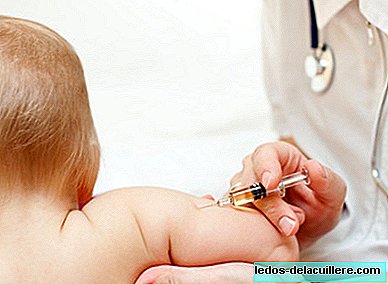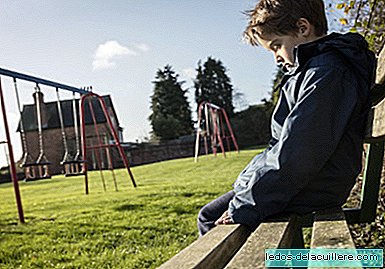
If you ask us what has been the happiest time of our lives, many will answer without hesitation: "when I was a child." Childhood is a period that usually remembered with melancholy, even for those people who have lived hard situations at that time.
However it is not always so. Children can also become depressed, experience anxiety and other psychological problems. In child psychology consultations these problems are treated by looking for the origin of the symptoms and working hard with families.
Happy childhood ... with nuances
While in the waiting room of a psychotherapy center I noticed a corner where there was a small table with small chairs, colors, toys ... My first thought was that they were for children to entertain while their parents went to therapy and, When they explained to me that the children were the patients, I was surprised and a feeling of sadness invaded me.
But does childhood not have to be a happy time? Not necessarily, replies María Sánchez Corrales, child psychologist at Vinculo Psicoterapia:
“There is a desire shared by most modern mothers and fathers that their children be happy, but that desire marks each childhood differently. There are families who consider that the weight of that happiness must be in training, others in the playful, others in the discipline. Each of those educational decisions we make are transferred to minors with a specific style and with a particular biography in the parents' backpack. It will be the way in which the minor metabolizes those interactions that, as an adult, lead him to feel that "his childhood was happy or not".
The children, to therapy
Childhood is a key stage in our life, since it is when the personality is built, we develop a way of relating to others and also the security and insecurities that later will accompany us as adults are forged.
However, this does not mean that difficulties cannot arise in this process. María Sánchez explains what are the most frequent problems she attends in consultation:
At the earliest ages, the demands for therapy are usually related to impulse control, aggressiveness problems or sphincter control.
After early childhood, social problems in the relationship with peers, problems in the relationship with parents and authority figures, lack of motivation for studies and lately many self-injuries are treated above all.
Regardless of age, the incidence of childhood depression, somatization, eating disorders and self-esteem problems increases.
Depression and anxiety
Keep in mind that Child depression does not work like that of adults. In children this psychological problem is manifested through physical symptoms such as gut pain, head, irritability, lack of interest in the game or the environment and lack of energy. As the expert consulted explains:
“In preschool ages the most significant thing is irritability, fatigue, frequent pain, crying and lack of play. In older ages, sadness, apathy, disinterest, low self-esteem and feelings of guilt are more frequent. In adolescence it is seen more through the implementation of inappropriate or aggressive behaviors that are sometimes accompanied by drug use. With regard to anxiety, in childhood it appears related to fears that manifest in blockages. ”
How these problems are treated in the consultation
Psychologists who work with children look at the symptom as part of something broader. Depending on the age, they try to approach the child using various ways, for example through play or drawing.
Of course, the family is a key element in the treatment of the child: “We approach their worries and their wounds, but it is essential to look at the rest of the family nucleus. Sometimes we apply psychoeducation, compensatory techniques of damaged abilities, other times we urge to reexperience the traumatic experience and associate it with less intense emotions. It depends on the needs of each case. What is key is that both the patient and the family feel comfortable and trust their psychologist, ”explains this expert.
Take care of our children's mental health
And what can we do to make our children grow up happy? "Take care of the emotional connection with our children," replies the psychologist. And this, which may sound complicated means to look them in the eye, listen to them, share time with them, take an interest in what they like and what concerns them, hug them, kiss them, tell them that we love them, that we are proud of them, Accept them as they are and let them know.
But also (and this can be the most difficult) to accept who we are as parents and "look in our backpack what we are carrying in our children's".
Via Link Psychotherapy
In Babies and more What to do if I think my child is depressed ?, Child stress related to mental disorders in adulthood


